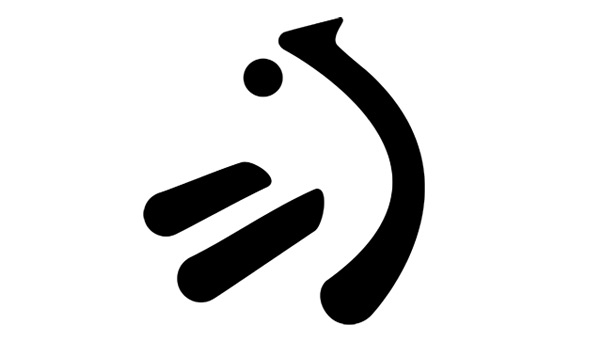As Finland and Sweden join the Alliance ‘de facto’, the Russian Duma passes a law requiring companies to manufacture military equipment
The Russian parliament on Tuesday approved the creation of a secret war economy the same day NATO confirmed its next expansion of borders with the ‘de facto’ accession of Finland and Sweden. The Duma passed two laws forcing industries to manufacture military equipment when necessary and workers to contribute through overtime or suspending vacations. The new rules also coincide with the victory climate announced yesterday by the president, Vladimir Putin, who congratulated his army and the pro-Russian separatists on the capture of Lugansk province after Monday’s capture of the main city of Lisichansk.
Sweden and Finns are one step closer to NATO. The foreign ministers of the two countries signed their protocol of accession to the Atlantic Alliance yesterday, making them ‘de facto’ members of the organization, in the absence of formal ratification by the 30 allied countries. “It’s a good day for Sweden and Finland, and a good day for NATO,” Alliance Secretary General Jens Stoltenberg said at the start of the ceremony in Brussels. With 32 countries “we will be even stronger and our citizens will be better protected as we face the biggest security crisis in decades,” he added.
Finnish Foreign Minister Pekka Haavisto thanked the Alliance for its readiness and pointed out that it hopes for a “speedy process” of ratification. Her Swedish counterpart, Ann Linde, for her part, emphasized the importance of membership for the two Scandinavian countries, which have traditionally taken positions inconsistent with the military alliance.
The Russian invasion of Ukraine – and the fact that Finland shares a land border of more than 1,300 kilometers – has brought the two countries closer to NATO. It was initially expected that joining the Atlantic organization would be swift through an express procedure, but the two states’ candidacy clashed with Turkey’s initial veto. Finally, Ankara withdrew its refusal in exchange for a greater commitment from Sweden and Finland in the fight against the Kurdistan Workers’ Party (PKK) terrorist group and the People’s Protection Units. The government of Recep Tayyip Erdogan accuses Stockholm of protecting these organizations and refusing to extradite “thirty terrorists”.
The Turkish authorities have insisted that the cooperation of the Scandinavian countries on this issue is fundamental and have threatened to block again the final accession process, which will take months, as it must be validated by each member of the Atlantic Alliance. For example, the official accession of Sweden and Finland is expected at the end of this year or early 2023.
While NATO was celebrating this process, Russia also had its own event yesterday. The president, Vladimir Putin, was especially pleased with the capture of Lisichansk and the borderline of Lugansk province, paving the way for his army to take over the entire Donbas region. This is currently the preferred target of the invasion of Ukraine, as it would allow Moscow to establish its domains in the southeast of the country from Crimea.
The Kremlin gave new signs of its intentions by ordering an intense air and artillery bombardment on neighboring Donetsk, a province where Ukrainian forces are still resisting and who this Tuesday attacked their defenses in the towns of Spirne and Novoluhanske. to ward off. However, the situation is more complicated in another essential enclave: Sloviansk. The Russians dominate for the most part and the rest are suffering “massively” from the effect of rockets and grenades, the mayor said, urging the population to flee the city as soon as possible. At least two civilians were killed in the bombing yesterday.
US intelligence sources say Putin ordered his troops to take an “operational break” to reorganize, with the purported aim of unleashing an imminent major offensive on Donetsk. “The units that have actively participated in combat actions and achieved success, victory, towards Lugansk, must certainly rest in order to increase their combat capacity,” the Russian president said. His words suggest the possibility that Moscow has firm hopes of a faster-than-projected victory in Donbas, although experts believe this will depend largely on Ukraine’s combat capability with the advanced weapons it has received in recent weeks.
Another element drawing attention to the approach of decisive weeks is the decision of the lower house of the Russian parliament, which yesterday received the consensus of the delegates in first reading to activate the ‘underground’ war economy. The reform will undoubtedly increase Russia’s capabilities to manufacture weapons and other materials after nearly nineteen weeks of war that has exhausted many of its resources. “The burden on the defense industry has increased significantly. In order to guarantee the supply of weapons and ammunition, it is necessary to optimize the work of the military-industrial complex and the companies that are part of the cooperation chains,” said Deputy Prime Minister Yuri Borisov.
Source: La Verdad
I am an experienced and passionate journalist with a strong track record in news website reporting. I specialize in technology coverage, breaking stories on the latest developments and trends from around the world. Working for Today Times Live has given me the opportunity to write thought-provoking pieces that have caught the attention of many readers.



